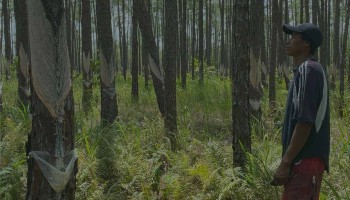The group includes members of a well-known criminal group along with politicians from the two main parties.
Among those arrested are the head of the National Civil Protection Department and a local police chief; the president of the anti-corruption council; the former president of a major real estate development company, Eur SPA; and the former CEO of the Azienda Municipale Ambiente (AMA), the waste management company of the Municipality of Rome.
Also arrested was Massimo Carminati, known as “er Cecato” (the one-eyed), whose character was memorably depicted in Michele Placido’s 2005 movie “Romanzo Criminale” (Criminal Novel) as Il Nero, “The Black”.
The film tells the story of the Banda della Magliana, Rome’s most powerful criminal group in the 1970s and 1980s with strong connections to the Sicilian Mafia, and its links to the Italian secret services who used the mobsters for dirty jobs. Carminati was the group’s liaison to the right-wing extremist terror group Nuclei Armati Rivoluzionari (NAR).
Carminati: the Boss of the Middle World
Police say Carminati was involved in political assassinations, massacres and homicides, yet escaped prosecution on the most serious charges due to lack of evidence. After serving a prison term on lesser charges, he returned to work in the ‘Mondo di Mezzo’ or Middle World, a term he used in a wiretapped conversation that became the name of the current police operation.
“It’s the theory of the Middle World,” he told Riccardo Burgia, his comrade from NAR, a former bank robber and now a militant who was also arrested Dec. 2. “There are those of the Upper World, ‘the living,’ and those of the Underworld, ‘the deads’. We are in the Middle World where anything can happen, anyone can meet anybody. I could be having dinner, for example, with (former Italian prime minister and media tycoon Silvio) Berlusconi tomorrow… understand? Which on paper is impossible, but in the Middle World could happen.”
The arrests on Dec. 2 are the results of a four-year investigation by Prosecutor Giuseppe Pignatone and the Special Unit of Carabinieri that traced the organization and structure of what they are calling the Mafia Capitale.
The Guardia di Finanza (financial police) seized goods worth an estimated € 204 million (US$ 250 million) and hundred thousands of Euros in cash. Two days after the first round of arrests, the Carabinieri arrested Giovanni de Carlo, the “boss of bosses”, at Rome’s airport.
Is there Mafia in Rome or not?
Most of those arrested are being charged under Article 416bis of the Italian Penal Code, which deals with organized crime or Mafia.
This is significant because in Italy the common belief is that the Mafia, ’Ndrangheta and Camorra operate only in the south of the peninsula and not in Rome or Milan, where the authorities tend to deny that there is organized crime.
In Rome and Milan, they refer instead to ‘la Mala,’ local criminals that work alone or in occasional groups to commit minor crimes. As recently as two years ago, the Prefetto of Rome (the local representative of the Ministry of Home Affairs) said that “there is no Mafia in Rome, only war among gangs over the drug market“.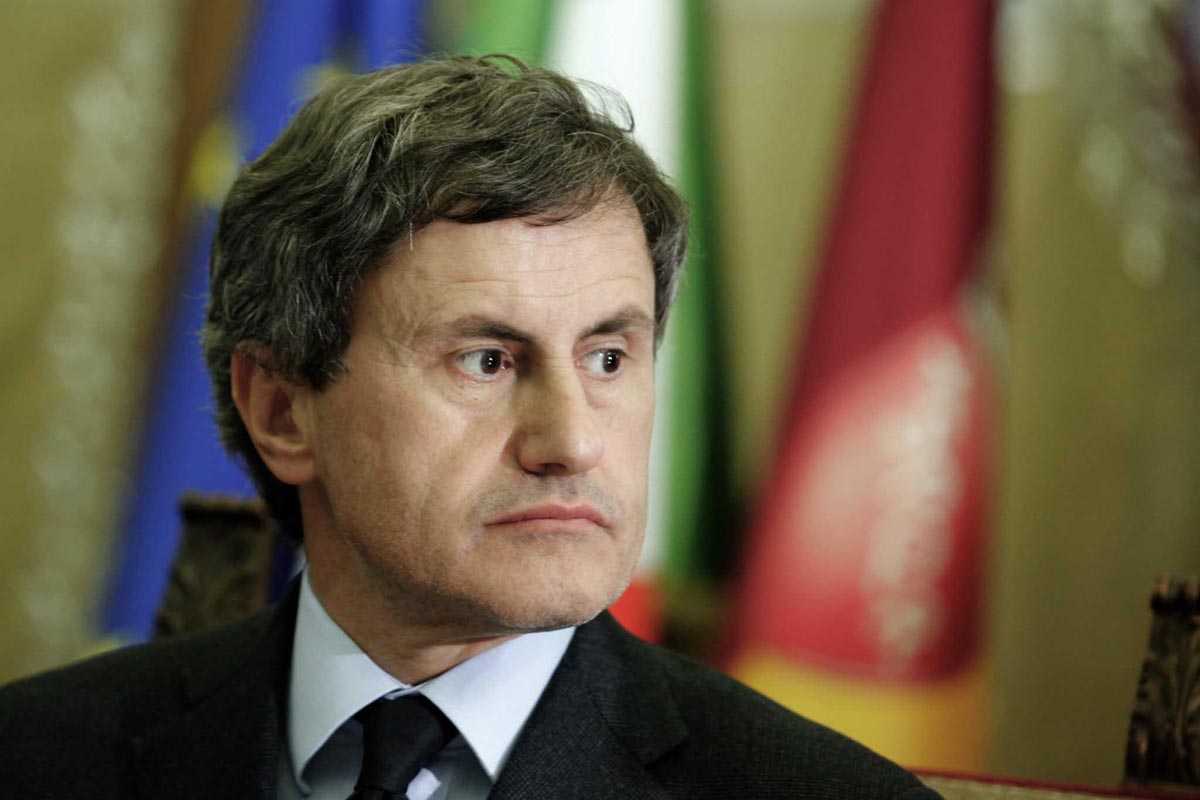 Former mayor of Rome Gianni Alemanno.
Former mayor of Rome Gianni Alemanno.
Former Rome mayor Gianni Alemanno, who is under investigation in the case, told the Sunday Times in 2012 that “in the south of Italy, the Mafia is the problem, in Rome it is immigration."
“Through this police operation we tried to answer, again, the question: is there Mafia in Rome?” Pignatone said at a press conference. “In Rome there isn’t only one Mafia; the group linked to Carminati … is independent from the organizations in south Italy (Cosa Nostra, Camorra, (and) ’Ndrangheta),” although they often work together.”
According to Pignatone, Carminati’s organization succeeds in intimidating its targets due to the criminal prestige he earned in the past from his involvement with the Banda della Magliana and right-wing extremists. “Everybody knows that even now in 2014, he would be able to use violence to create subjugation, intimidation, and (enforce silence) omertà. In one word, the group behaves like Mafia, therefore it’s Mafia”.
Group Dynamics
How did the Mafia Capitale work?
“Carminati was the head; he's the one who knows all the businesses, all the people involved in every sector,” explains assistant prosecutor Michele Pristipino. “There were three levels: the underworld criminal sector, the entrepreneurial economic sector, (and) the public administration sector.”
As an example of how the group used criminal and military power to intimidate, the prosecutor cited the story of an entrepreneur from Rome, who had been approached by Carminati's group seeking to buy a plot of land from him.
When the victim refused, they started in with threats:. “If you don't sell to us, you will never do anything with that land!” The businessman confessed to a friend, “I'm done, finished. When they come after me I feel sick, I feel like I am suffocating.”
Others knew about Carminati's group and would ask him directly for ”protection” from minor criminals as well as help with the public administration. But prosecutors said Carminati did not ask for money in exchange for protection, but instead to become a hidden partner of the company.
“I wouldn't accept not even a million Euros from you,” he says in a wiretapped conversation. “I don't care about money! I want to do business together.”
Carminati, in fact, needed the companies in order to achieve his real objective: access to public tenders.
Organized Crime in the Heart of Rome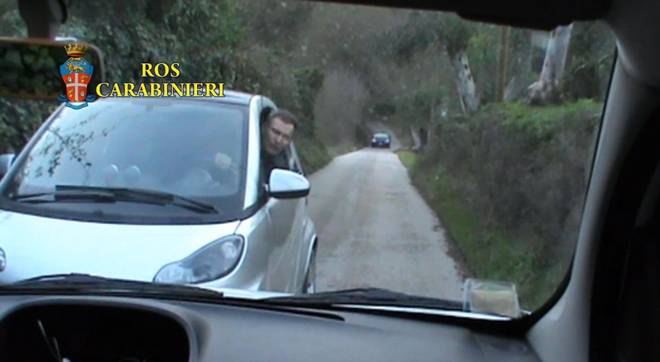 Arrest of Massimo Carminati.
Arrest of Massimo Carminati.
“Carminati's group (eventually obtained) the power to select key managers in public administration,” explains prosecutor Pristipino. “They managed to place a lawyer on the Board of Governors of the main public company of Rome,” the waste management company AMA Ltd. with a turnover of € 850 million or US$ 1 billion).
“The group chose the General Director of a company controlled by AMA Ltd. They even chose who would be the head of the Municipal Commission for Transparency, and they ran the campaign for the mayor of a small town close to Rome where Carminati had his villa, Sacrofano. And of course their candidate won.”
The Mafia Capitale won at least three extremely profitable tenders: one in the waste recycling management of Rome, one in the cleaning of public streets and another (type unknown) which is still being investigated.
Buzzi and ‘The Cooperative’
The other main actor in the Mafia Capitale is Carminati’s alter ego, Salvatore Buzzi, who was also arrested in the sweep on organized crime and corruption charges.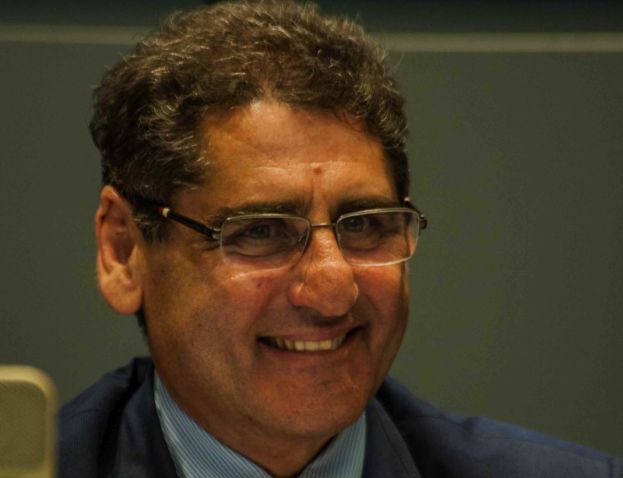 Salvatore Buzzi
Salvatore Buzzi
Buzzi, a former left-wing militant who was convicted of homicide, spent his time in prison studying and was the first person to earn a university degree within Rebibbia (Rome main prison) cum laude. He become a lobbyist for alternative measures of detention in Italy and created a cooperative for inmates, ex-offenders and the poor.
The cooperative, called '29 giugno' (June 29) aimed at rehabilitating people who had made mistakes and wanted to regain their place in society. Over the years the cooperative has built an empire in many different sectors of the local economy, with interests from cleaning services to waste management, immigration services and social housing. Each year the cooperative acquired more companies.
Even as Italy struggled through an economic downturn, the cooperative thrived. Its financial statement for 2013 noted that “our economic results are against the flow both for what concerns turnover and employment,” as Buzzi put it. They have € 60 million (US$ 73 million) of turnover, a capital of € 16 million (US$ 20 million) and 1,200 employees.
Back in 2004, Buzzi had created another very successful company, “Eriches 29,” a consortium of cooperatives that works only in two sectors: conservation of green spaces and services for immigrants, refugees, and Roma people. In less than 10 years, the turnover has grown from € 840,000 (US$ 1 million) in 2004) to € 15 million ($US 18.4 million) in 2013. Buzzi, not surprisingly, is often photographed with the Minister of Labor and Social Affairs, Giancarlo Poletti, who was president of the powerful Italian League of Cooperatives -- of which '29 giugno' is a member.
Prior to Buzzi’s arrest, he had an enviable reputation in the world of social services. It’s easy to find his interviews on social rehabilitation and on immigration, where he shares a very progressive point of view.
According to Carabinieri wiretaps, this reputation seems to be bogus, and his interests far more mercenary. “This year I made € 40 million (US$ 49 million) off the gypsies, ” he said. “Can you figure out how much we can earn on immigrants?” Siphoning off public funds in such programs is a lot less risky than drug trafficking, he said.
How did the system work?
Police searched the house of Nadia Cerrito, Buzzi’s personal secretary, and found a “black book” where all the bribes to politicians were punctiliously listed. “I couldn’t refuse to prepare the envelopes,” says Cerrito, who is also facing charges of organized crime and corruption. Investigators say it lists tenders, names and payments:
Franco Panzironi, former CEO of the AMA Spa waste management firm, allegedly received a ”salary” of € 15,000 (US$ 18,400) per month, and a bribe of € 120,000 (US$ 147,000) for maneuvering a tender in Buzzi’s favor. As an extra bonus, his home garden work was done. He was arrested.
Carlo Pucci, manager of the public company EUR Spa (real estate and events), allegedly received € 5,000 (US$ 6,100) per month. Arrested.
Luca Odevaine, manager of the Province of Rome and member of the Committee for Reception of Immigrants, who could influence the committee in favor of Buzzi’s cooperatives, allegedly received € 5,000 per month. Arrested.
Claudio Turella, an employee of the Municipality of Rome responsible for the public greens and gardens, is suspected of asking for a € 100,000 (US$ 122,860) payment out of the € 800,000 (US$ 983,000) given to Buzzi in order to clean Rome after a big snowstorm in February 2012. “F…k!” (complains Buzzi on the wiretap. “We agreed on 40,000, now he wants 100,000; we gotta find this money.” Arrested.
The black book also lists politicians like Mirko Coratti (Democratic party member and president of the Assembly, who police say wanted €150,000 (US$ 184,000) in exchange for a € 3 million (US$ 3.7 million) payment from the Municipality to Buzzi’s empire. He is under investigation.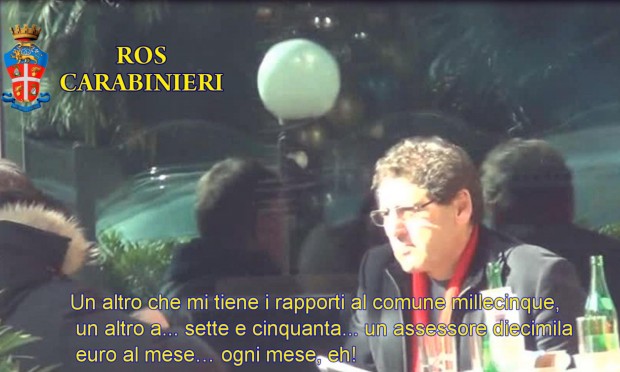 Salvatore Buzzi
Salvatore Buzzi
The investigation indicates the cooperative provided various services. For Luca Gramazio, a member of Berlusconi’s PDL party who is under investigation, Buzzi found jobs for four people who helped during the electoral campaign. Gramazio was the right hand of former mayor Gianni Alemanno, who allegedly received € 90,000 (US$ 110,000) for the electoral campaign and € 40,000 (US$ 49,000) for the Nuova Italia Foundation, a think tank linked to Alemanno.
But Buzzi also gave money to Alemanno’s challenger, donating € 30,000 (US$ 36,858) to the electoral campaign of Ignazio Marino, who defeated Alemanno in the 2013 election. Marino has not been charged and is not under investigation.
The cooperative’s reach was impressive. Marino, an outsider in his own party (Democratic Party), reports weeks of personal attacks for trivial reasons, like being fined for parking his car (a Fiat Panda) in the city center. He says now that those attacks came because he was trying to break the Buzzi system. The police think that he might be personally in danger and have assigned a security detail to protect him.
Meanwhile, investigators say the Lazio Region, which surrounds Rome, was also targeted by the Mafia Capitale. The president of the Region, Nicola Zingaretti, decided to suspend all recent tenders pending an internal investigation into whether companies or cooperatives linked to the Mafia Capitale are working within the Region's public services.
‘From the South’ Talks about the Mafia
Da sud, or “From the South,” is an association that was born in Calabria and a few years ago moved to Rome to promote a ”social anti-mafia” movement of grass-roots citizens ready to fight the Mafia.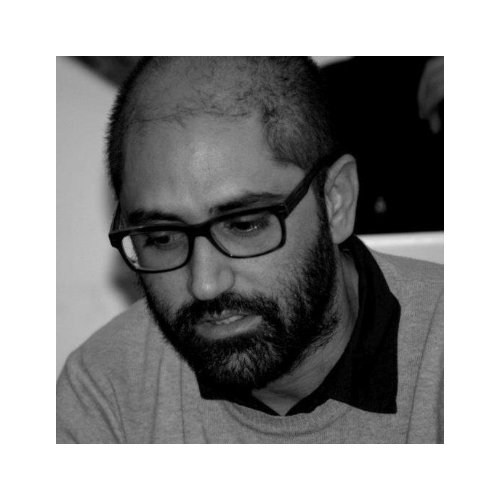 Danilo Chirico
Danilo Chirico
“We came to Rome to talk and provide information about the southern part of Italy and the Mafia phenomenon,” says the organization’s president, Danilo Chirico. “But then we started realizing that the phenomena was also in Rome, in a very similar way.
“We started connecting episodes and names. We made our investigations and we discovered that the system was very much the same. Whole parts of the city are in the hands of clans; they provide services, they give jobs, they help a family if someone goes to jail, they provide protection from little crimes. If you pay them you can be much more secure than with the police.
“In some neighborhoods (Tor Bella Monaca, La Romanina, San Basilio, Ostia –all poor suburbs of Rome), the only economy that exists is drug trafficking, and you have the ‘vedette’ (the look out), the families that hold the drugs. It is the the same social economy as in Scampia (Naples),” an area controlled by the Camorra.
Chirico said people in Rome did not want to believe they had a problem.
“It was very difficult (to convince) citizens from Rome, and also from the rest of Italy (outside) the South. They have a strong resistance against the idea that they live in a territory where the anti-state is strong just as in Sicily or in Calabria. Little by little they could accept that in Rome there is a money laundering for illegal Mafia earnings, but still there is a strong denial.
“The signals were all there: homicides, investigations, seizures. Everything showed that the different Mafia groups were getting organized in Rome. The first sentence for Mafia (activities) in Rome was given last June. This is a first step to overcome this cultural resistance, but we will see if it will be kept (up)”.
Chirico said he was worried when he heard about the concept of Middle World.
“I felt a strong concern and anxiety. I wasn’t much surprised, since many names that are in the investigation were known to us, but learning that there is this pervasive infiltration of organized crime in the social sector is scary. It’s like organized crime in Rome not only provides informal social services, but it’s also working in the official welfare system.
“The second thing I thought is that this is not the end,” Chirco said, noting that only parts of the organization have been revealed. “We still aren’t talking about drugs,” he said. “Because despite what we heard in the taped conversation, the main business in Rome is still drug trafficking.”
An earlier version of this story incorrectly stated that former Rome mayor Gianni Alemanno had been arrested. Alemanno is under investigation. OCCRP regrets the error.






